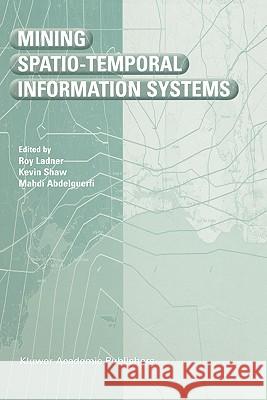Mining Spatio-Temporal Information Systems » książka
Mining Spatio-Temporal Information Systems
ISBN-13: 9781402071706 / Angielski / Twarda / 2002 / 170 str.
We are facing a rapidly growing capability to collect more and more data regarding our environment. With that, we must have the ability to extract more insightful knowledge about the environmental processes at work on the earth. Spatio-Temporal Information Systems (STIS) will especially prove beneficial in producing useful knowledge about changes in our world from these ever burgeoning collections of environment data.
STIS provide the ability to store, analyze and represent the dynamic properties of the environment, that is, geographic information in space and time. An STIS, for example, can produce a weather map, but more importantly, it can present a user with information in map or report form indicating how precipitation progresses in space over time to affect a watershed. Other uses include forestry and even electrical systems management. Forestry experts using an STIS are able to examine the rates of movements of forest fires, how they evolve over time, and their impact on forest growth over long periods of time. A large electrical network system manager uses an STIS to track the failures and repairs of electrical transformers. Use of an STIS in this case allows the reconstruction of the status of the network at any given past time.
Mining Spatio-Temporal Information Systems, an edited volume is composed of chapters from leading experts in the field of Spatial-Temporal Information Systems and addresses the many issues in support of modeling, creation, querying, visualizing and mining. Mining Spatio-Temporal Information Systems is intended to bring together a coherent body of recent knowledge relating to STIS data modeling, design, implementation and STIS in knowledge discovery. In particular, the reader is exposed to the latest techniques for the practical design of STIS, essential for complex query processing.
Mining Spatio-Temporal Information Systems is structured to meet the needs of practitioners and researchers in industry and graduate-level students in Computer Science.











